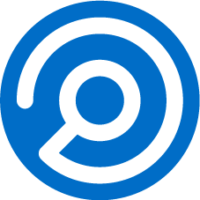Next up in our #CustomerSpotlight series we have Robby Halford, Head of Revenue Enablement at Sparrow.
What was your first job and how did it bring you to where you are today?
My first first job was working at a pumpkin farm in Northern California at the Bishop Pumpkin Farm in Wheatland. I can make a mean cotton candy, but it did teach me how to multitask.
And in my first career, moving out of the university into education, I spent a lot of time, my masters and my doctorate in education. I started as a classroom teacher. I had an opportunity to actually go back to Chico, which is where I went to school, and to get a job in educational sales. It was a slight pivot to me, but I realized I really enjoyed it. I loved working with students, especially in their student activities and leadership development, and was very successful in sales. Other sellers started to reach out to me, asking me for help with technology, with building processes, and that kind of parlayed myself into sales enablement.
I’ve been in the enablement practice since 2012. If we really think about it, I’ve been around pretty much since the practice started to formalize. I’ve watched both the practice and the technology grow with my career, so it’s been kind of cool.
How do you see the sales enablement category evolving in 2022 and beyond?
The enablement practice itself is still very much the Wild West because there isn’t a very clear line of best practices. Enablement is still trying to figure out what it is, and there are a lot of people who have a lot of feelings and thoughts about how enablement should be done. And we’re just starting to get empirical data – academic papers are starting to come out around enablement. For example, Dr. Dover, down at the University of Texas, Dallas, wrote one of the first papers on enablement. As we start to see more academic study on the enablement and sales practice, data is going to inform our best practices as we go forward.
What is a best practice you’d like to share with other enablement practitioners?
The best practice I would always remind people is that we have to stay focused on who our customers are, which is our sellers. And I have a saying that “learning is a revenue generating activity.” In a virtual world, find a way to “walk the floor” as much as you possibly can, whether it’s engaging with your sellers, whether it’s at boot camps or whether it’s just talking to people. Because sometimes we get caught up in our own little bubble of trying to build content, and trying to do these activities that we forget to talk to our customers.
And I say that that is probably the best thing to inform us because if I understand what’s going on in the field, I can help pivot or reinforce something that we’ve already built. But if I think that I’m going to build all this enablement on an island, I’m going to wind up becoming very isolated very quickly, and I’m not providing value to the organization.
What advice do you have for your peers who are trying to make enablement a priority within their organization?
I think that the biggest problem with enablement is we become order takers instead of somebody at the table. You have to align what you are doing to the executive priorities of the business or to your CRO.
And so one of the things that I like to do is we understand, okay, one of the questions I’ll ask the CRO is, “What are you trying to accomplish?” instead of trying to get smiley faces and saying, “Look, people love our training.” Go back to asking your CRO what behaviors they want to see changed and go solve that problem. Then be able to demonstrate that you solved it.
What advice do you have for your peers who are considering a sales enablement solution?
Invest in the right solution that you want five years from now. There are a plethora of tools out there right now because this is a hot market and the space is bursting at the seams with different vendors. Don’t look for what you need right now, look for what you want five years from now. Because once you get this thing rolling, it’s going to be really, really hard to pivot to a new platform. You’ll lose empirical data and you’ll lose the work that you put in to build, organize, and get everything aligned. Don’t buy something cheap at the beginning and regret that three years later, when you’re having to buy a tool that’s more aligned with what you need as an organization, three years from now.
What is something most people don’t know about you?
I have a weird obsession with hotel and airline points. I love to travel, but I don’t like to pay for all these travel experiences. When the pandemic hit, I didn’t have anything to do so I learned the hacks — essentially I started coupon clipping, but for points.




